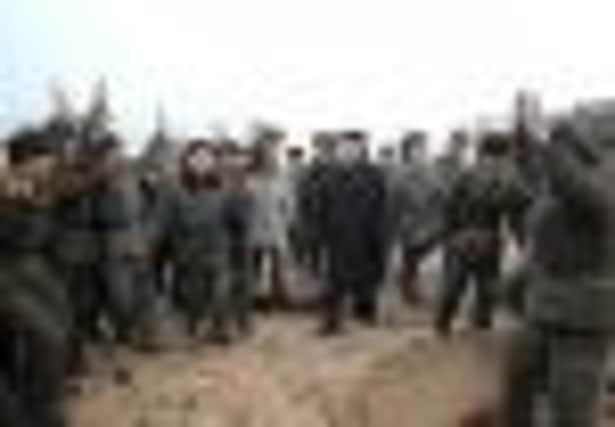North Korea makes waves over UN sanctions


North Korea’s Committee for the Peaceful Reunification of Korea, the country’s arm for dealing with cross-border affairs with Seoul, said it will retaliate with “crushing strikes” if enemies intrude into its territory “even an inch and fire even a single shell.”
It also said it was cancelling past nuclear-disarmament agreements between North and South Korea, and scrapping a hotline with the US and no longer recognising the armistice that ended the Korean War in 1953.
Advertisement
Hide AdAdvertisement
Hide AdChina, which provides food aid to Pyongyang, called on all sides in the conflict to talk and avoid “further escalation”.
Hua Chunying, of China’s foreign ministry, said: “China and North Korea have normal country relations. At the same time, we also oppose North Korea’s conducting of nuclear tests.
“China calls on the relevant parties to be calm and exercise restraint and avoid taking any further action that would cause any further escalations.”
South Korean president Park Geun-hye said her country would retaliate against any military strikes or other provocations.
“I will deal strongly with North Korea’s provocations,” Ms. Park said.
The Security Council responded swiftly to North Korea’s latest nuclear test by punishing the reclusive regime on Thursday night. It voted to implement tough, new sanctions targeting its economy and leadership, despite Pyongyang’s threat of a pre-emptive nuclear strike on the US.
The penalties came in a unanimous resolution drafted by the US along with China.
The resolution sent a message to North Korea’s new young leader, Kim Jong Un, that the international community condemns his defiance of Security Council bans on nuclear and ballistic tests and is prepared to take even tougher action if he continues flouting international obligations.
Advertisement
Hide AdAdvertisement
Hide Ad“Taken together, these sanctions will bite, and bite hard,” US ambassador Susan Rice said. “They increase North Korea’s isolation and raise the cost to North Korea’s leaders of defying the international community.”
In a 1992 joint declaration South and North Korea agreed not to produce, test or use nuclear weapons. North Korea has since conducted three nuclear tests.
The resolution also targets North Korea’s ruling elite by banning all nations from exporting expensive yachts, luxury cars and racing cars to the North.
It also imposes new travel sanctions that would require countries to expel agents working for sanctioned North Korean companies.
The success of the sanctions could depend on how well they are enforced by China, where most of the companies and banks that North Korea is believed to work with are based.
The top US envoy on North Korea, Glyn Davies, cautioned Pyongyang not to miscalculate, saying the US will take necessary steps to defend itself and its allies, including South Korea, where it bases more than 30,000 US forces.
China’s UN ambassador Li Baodong said: the resolution reflects the determination of the international community to prevent nuclear proliferation, but its adoption “is not enough.”
“The top priority now is to defuse the tensions,” he added.